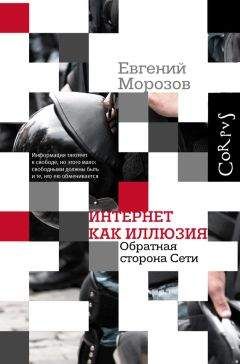Informatics Society, October 11, 1990.
Pursell, C. W., Jr. Government and Technology in the Great Depression // Technology and Culture 20, no. 1 (1979): 162–174.
Radder, H. Normative Reflexions on Constructivist Approaches to Science and Technology // Social Studies of Science 22, no. 1 (1992): 141–173.
RÜrup, R. Historians and Modern Technology: Reflections on the Development and Current Problems of the History of Technology // Technology and Culture (1974): 161–193.
Scannell, P. The Dialectic of Time and Television // Annals of the American Academy of Political and Social Science 625, no. 1 (2009): 219.
Schaniel, W. C. New Technology and Culture Change in Traditional
Societies // Journal of Economic Issues 22, no. 2 (1988): 493–498. Segal, H. P. Technological Utopianism in American Culture. Syracuse,
NY: Syracuse University Press, 2005.
Shen, X. The Chinese Road to High Technology: A Study of Telecommunications Switching Technology in the Economic Transition. New York: St. Martin’s, 1999.
Sibley, M. Q. Utopian Thought and Technology // American Journal of Political Science (1973): 255–281.
Smith, M. R., and L. Marx, eds. Does Technology Drive History? The Dilemma of Technological Determinism. Cambridge, MA: MIT Press, 1994.
Sola Pool, Ithiel de Technologies of Freedom. Cambridge, MA: Harvard University Press, 1983.
Spar, D. L. Ruling the Waves: Cycles of Discovery, Chaos, and Wealth from Compass to the Internet. New York: Harcourt, 2001.
Standage, T. The Victorian Internet: The Remarkable Story of the Telegraph and the Nineteenth Century’s On-Line Pioneers. New York: Walker, 1998.
Staudenmaier, J. M. Rationality, Agency, Contingency: Recent Trends in the History of Technology // Reviews in American History (2002): 168–181.
Staudenmaier, J. M. Technology’s Storytellers: Reweaving the Human Fabric. Cambridge, MA: Society for the History of Technology and the MIT Press, 1989.
Stump, D. J. Socially Constructed Technology // Inquiry 43, no. 2 (2000): 217–224.
Sturken, M., and D. Thomas Technological Visions: The Hopes and Fears That Shape New Technologies. Philadelphia: Temple Uni-versity Press, 2004.
Tedre, M., Sutinen, E., Konen, E., and P. Kommers Eth-nocomputing: ICT in Cultural and Social Context // Communications of the ACM49, no. 1 (2006): 130.
Teich, A. H., ed. Technology and the Future. 9th ed. Belmont, CA: Wadsworth/Thomson, 2003.
Thorne, K., and A. Kouzmin Cyberpunk-Web 1.0 ‘Egoism’ Greets Group-Web 2.0 “Narcissism”: Convergence, Consumption, and Sur-veillance in the Digital Divide // Administrative Theory & Praxis 30, no. 3 (2008): 299–323.
Thrift, N. New Urban Eras and Old Technological Fears: Reconfiguring the Goodwill of Electronic Things // Urban Studies 33, no. 8 (1996): 1463.
Van Dijck, J., and D. Nieborg Wikinomics and Its Discontents: A Critical Analysis of Web 2.0 Business Manifestos // New Media & Society 11, no. 5 (2009): 855.
Verheul, J., ed. Dreams of Paradise, Visions of Apocalypse: Utopia and Dystopia in American Culture. Amsterdam: VU University Press, 2004.
Warf, B., and J. Grimes Counterhegemonic Discourses and the In-ternet // Geographical Review 87, no. 2 (1997): 259–274.
Weightman, G. Signor Marconi’s Magic Box: The Most Remarkable Invention of the 19th Century and the Amateur Inventor Whose Genius Sparked a Revolution. Cambridge, MA: Da Capo Press, 2003.
Wellman, B., and B. Hogan The Immanent Internet // Netting
Citizens: Exploring Citizenship in a Digital Age (2004): 54–80. White, D. M., ed. Popular Culture. New York: New York Times,
1975.
Williams, R., and E. Williams Television: Technology and Cul-tural Form. New York: Routledge, 2003.
Winner, L. Autonomous Technology: Technics-Out-of-Control as a Theme in Political Thought. Cambridge, MA: MIT Press, 1978. Winner, L. Social Constructivism: Opening the Black Box and Finding It Empty // Science as Culture 3, no. 3 (1993): 427–452.
Winner, L. The Whale and the Reactor: A Search for Limits in an Age of High Technology. Chicago: University of Chicago Press, 1988.
Winseck, D. R., and R. M. Pike Communication and Empire: Media, Markets, and Globalization, 1860–1930. Durham, NC: Duke University Press, 2007.
Wise, G. Technological Prediction, 1890–1940. PhD diss., Boston Uni-versity, 1976.
Woolgar, S., and G. Cooper Do Artefacts Have Ambivalence? Moses’ Bridges, Winner’s Bridges and Other Urban Legends in S&TS // Social Studies of Science 29, no. 3 (1999): 433.
Wyatt, S. Technological Determinism Is Dead; Long Live Technological Determinism / In: Hackett, E. J., et al., eds. The Handbook of Science and Technology Studies, 165. Cambridge, MA: MIT Press, 2008.
Глава 11. Дело техники
Arendt, H. On Violence. New York: Harcourt, Brace, Jovanovich, 1970.
Austin, E. K., and J. C. Callen Reexamining the Role of Digital
Technology in Public Administration: From Devastation to Disclo-sure // Administrative Theory & Praxis 30, no. 3 (2008): 324–341.
Bostrom, N. Technological Revolutions: Ethics and Policy in the Dark //
Nanotechnology and Society (2007).
Brown, M. B. Can Technologies Represent Their Publics? // Techno-logy in Society 29, no. 3 (2007): 327–338.
Carey, J. W. Historical Pragmatism and the Internet // New Media &
Society 7, no. 4 (2005): 443.
Coyne, R. Wicked Problems Revisited // Design Studies 26, no. 1
(2005): 5–17.
David, E. E., Jr. On the Dimensions of the Technology Controversy //
Daedalus 109, no. 1 (1980): 169–177.
DÖrner, Dietrich The Logic of Failure: Recognizing and Avoiding Error in Complex Situations. New York; Metropolitan Books, 1996.
Duff, A. S. Social Engineering in the Information Age // Information
Society 21, no. 1 (2005): 67–71.
Freeman, M. Sociology and Utopia: Some Reflections on the Social
Philosophy of Karl Popper // British Journal of Sociology 26, no. 1 (1975): 20–34.
Grunwald, A. Converging Technologies: Visions, Increased Contin-gencies of the Conditio Humana, and Search for Orientation // Fu-tures 39, no. 4 (2007): 380–392.
Hamlett, P. W. Technology Theory and Deliberative Democracy //
Science, Technology & Human Values 28, no. 1 (2003): 112. Horner, D. S. Digital Futures: Promising Ethics and the Ethics of
Promising // ACM SIGCAS Computers and Society 37, no. 2 (2007): 64–77.
Jopson, Barney Hope Founders Where Ministers Lack E-mail // Fi-nancial Times, February 17, 2010.
Kakabadse, N. K., Kakabadse, A. P., and A. Kouzmin De-signing Balance into the Democratic Project: Contrasting Jeffersonian Democracy Against Bentham’s Panopticon Centralisation in Deter-mining ICT Adoption // Problems and Perspectives in Management 1 (2007).
Karlsson, R. Why the Far-Future Matters to Democracy Today // Futures 37, no. 10 (2005): 1095–1103.
Keulartz, J., Schermer, M., Korthals, M., and T. Swier-stra Ethics in Technological Culture: A Programmatic Proposal for a Pragmatist Approach // Science, Technology & Human Values 29, no. 1 (2004): 3.
Klosterman, C. Eating the Dinosaur. New York: Scribner, 2009. Krotoski, A. MediaGuardian Innovation Awards: Austin Heap v
Iran’s censors // Guardian, March 29, 2010.
Lanki, J. Why Would Information and Communications Technology Contribute to Development at All? An Ethical Inquiry into the Pos-sibilities of ICT in Development // E-Learning and Digital Media 3, no. 3 (2006): 448–461.
Layne, L. L. The Cultural Fix: An Anthropological Contribution to Science and Technology Studies // Science, Technology & Human Values 25, no. 3 (2000): 352.
Lazarus, R. J. Super Wicked Problems and Climate Change: Restraining the Present to Liberate the Future // Cornell Law Review 94, no. 5 (2009).
Lessnoff, M. The Political Philosophy of Karl Popper // British Jour-nal of Political Science 10, no. 1 (1980): 99–120.
Morrison, A. H. An Impossible Future: John Perry Barlow’s “Declaration of the Independence of Cyberspace” // New Media & Society 11, no. 1–2 (2009): 53.
Norman, D. A. Affordance, Conventions, and Design // Interactions 6, no. 3 (1999): 38–43.
Oliver, M. The Problem with Affordance // E-Learning and Digital Media 2, no. 4 (2005): 402–413.
O’Loughlin, B. The Political Implications of Digital Innovations: Trade-offs of Democracy and Liberty in the Developed World // Information, Communication & Society 4, no. 4 (2001): 595–614.
Petrina, S. Questioning the Language That We Use: A Reaction to Pannabecker’s Critique of the Technological Impact Metaphor // Journal of Technology Education 4, no. 1 (1992).
Pitkin, B. A Historical Perspective of Technology and Planning // Berkeley Planning Journal 15 (2001): 34–59.
Popper, K. The Poverty of Historicism, Vol. I // Economica 11, no. 42 (1944): 86–103.
Popper, K. The Poverty of Historicism, Vol. II. A Criticism of Histori-cist Methods // Economica 11, no. 43 (1944): 119–137.
Rittel, H. W. J., and M. M. Webber Dilemmas in a General The-ory of Planning // Policy Sciences 4, no. 2 (1973): 155–169.
Rosner, L. The Technological Fix: How People Use Technology to Create and Solve Problems. New York: Routledge, 2004.
Searle, J. I Married a Computer // New York Review of Books, April 8, 1999.
Stahl, B. C. Democracy, Responsibility, and Information Techno-logy / In: Proceedings of the European Conference on e-Government (2001): 429–439.
Tenner, E. Why Things Bite Back: Technology and the Revenge of Un-intended Consequences. New York: Vintage Books, 1997.
Weinberg, A. M. Can Technology Replace Social Engineering // Bul-letin of the Atomic Scientists 22, no. 10 (1966): 4–8.
Weinberg, A. M. Nuclear Reactions: Science And Trans-science. New York: American Institute of Physics, 1992.
Wexler, M. N. Exploring the Moral Dimension of Wicked Problems // International Journal of Sociology and Social Policy 29 (2009). Winner, L. Citizen Virtues in a Technological Order // Inquiry 35, no. 3 (1992): 341–361.
Winner, L. Mythinformation in the High-Tech Era // IEEE Spectrum 21, no. 6 (1984): 90–96.
Winner, L. Myth Information: Romantic Politics in the Computer Re-volution // Philosophy and Technology II: Information Techno-logy and Computers in Theory and Practice (1986): 269.
Winner, L. Technology Today: Utopia or Dystopia? Technology and the
Rest of Culture // Social Research 64, no. 3 (1997): 989–1017. Zuckerman, E. Internet Freedom: Beyond Circumvention // My Heart’s in Accra, February 22, 2010. ethanzuckerman.com/blog/2010/02/22/ internet-freedom-beyond-circumvention/.
Должен признаться, что я одним из первых угодил в “твиттер-революционную” ловушку, назвав молодежные манифестации в Молдове (за несколько месяцев до иранских) этим, как оказалось, неопределенным и вводящим в заблуждение термином. Несмотря на то, что я подробно объяснил, что именно имею в виду, это была не лучшая идея, особенно с учетом того, что в большинство СМИ попали далеко не все подробности. – Здесь и далее, если не указано иное – примечания автора.
Прозвище газеты “Нью-Йорк таймс”. – Прим. перев.
Уголовный кодекс Исламской Республики Иран. – Прим. перев.
Настоящее имя – Колин Лароуз. Американка, принявшая ислам, в январе 2014 года была приговорена к 10 годам тюрьмы за подготовку убийства шведского карикатуриста Ларса Вилкса, который изобразил пророка Мухаммеда с телом собаки. – Прим. перев.
Джеффри Гедмин был президентом “Радио Свободная Европа/Радио Свобода” с 2007 по 2011 год. – Прим. ред.
Пассаж из речи Рональда Рейгана, произнесенной в Берлине и обращенной к Михаилу Горбачеву. – Прим. перев.
Си-Спэн (C-SPAN, Cable-Satellite Public Affairs Network) – некоммерческая телесеть, транслирующая в основном заседания американских органов представительной власти. – Прим. перев.
Антигерой романа “1984” так излагает принцип управления тоталитарным обществом: “Если вам нужен образ будущего, вообразите сапог, топчущий лицо человека – вечно… Лицо для растаптывания всегда найдется. Всегда найдется еретик, враг общества, для того чтобы его снова и снова побеждали и унижали. <…> Никогда не прекратятся шпионство, предательства, аресты, пытки, казни, исчезновения. Это будет мир террора – в такой же степени, как мир торжества” (пер. В. Голышева). – Прим. перев.





